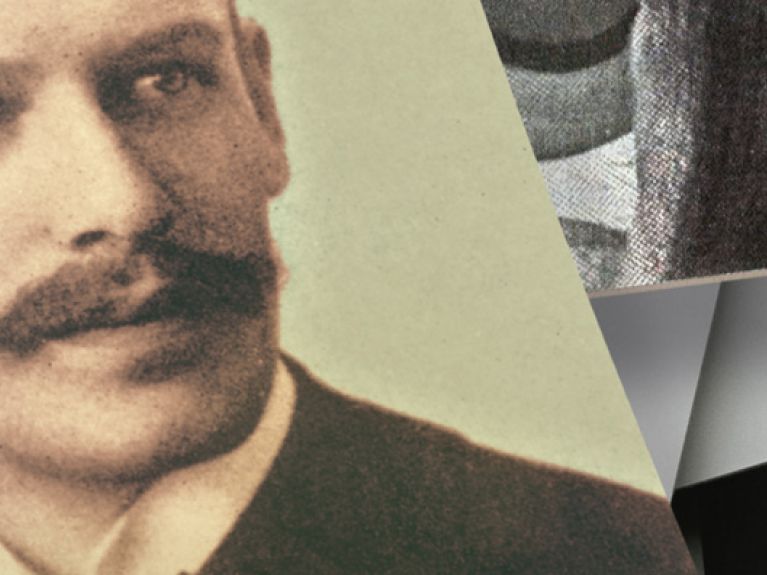The poet and maverick Christian Morgenstern
Clever wordplay characterizes the work of the poet Christian Morgenstern.

Almost every child in Germany knows Christian Morgenstern – perhaps because his school is named after him. Numerous public institutions have honoured Morgenstern by taking the name of the poet, the 100th anniversary of whose death will occur on 31 March 2014. Almost every child knows this poem:
Ein Wiesel / saß auf einem Kiesel / inmitten Bachgeriesel. / Wisst ihr / weshalb? / Das Mondkalb / verriet es mir / im Stillen: / Das raffinier- / te Tier / tat’s um des Reimes willen.
(A weasel / sat on a pebble / in the midst of a bubbling brook. / Do you know why? / The mooncalf / told me the secret / in confidence: / the clever beast / did it for the sake of a rhyme.
“The artsy weasel” reflects a great deal of what Morgenstern is about: subtle wordplay and a critique of language that penetrates deep into complex relationships and sets them into clever, light-footed poetry. In addition to humorous texts, the maverick also wrote explicitly serious ones, and himself divided his work into these two categories.
Restless and homeless
Christian Morgenstern was born in 1871 in Munich and had a “relatively short and rather difficult life”, in the words of his biographer Jochen Schimmang. Coming from a difficult family background, he remained restless and homeless. He eked out a living as a writer and translator; a lung disease would increasingly hamper him. A few months before the outbreak of the First World War, he died at the age of 43 in Meran. Morgenstern is not uncontroversial. Schimmang describes how he came under the influence of the anti-Semitic philosopher Paul de Lagarde. Another companion of the meaning-seeking poet was Rudolf Steiner, the founder of anthroposophy.
A series of exhibitions in Werder in Brandenburg seeks to throw light on the poet’s many facets. Werder and the local Galgenberg, or Gallow’s Hill, become a literary location when Morgenstern visited it with friends and founded the “League of the Gallows Brothers”, the inspiration for his Galgenlieder (i.e., Gallows Songs). The four-part exhibition cycle, entitled Immortal Christian Morgenstern, brings together pictures of more than a 100 artists who have treated themes of the poet. In addition, a Christian Morgenstern Museum of Literature will be opened in Werder on the occasion of the anniversary.
100th anniversary of the death of the poet Christian Morgenstern, 31 March 2014

